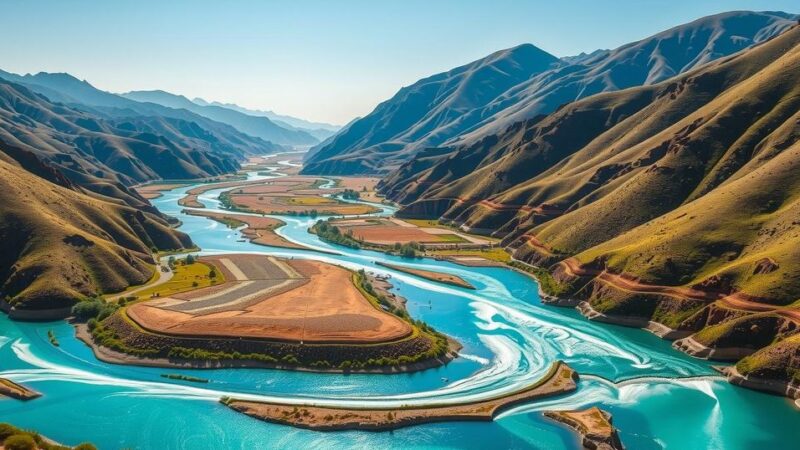Bui Van Phong’s family has preserved an ancient fish sauce-making tradition in Vietnam, but climate change and overfishing threaten the supply of essential anchovies. The craft, deeply woven into Vietnamese culture, struggles against rising costs and ecological challenges. Despite these issues, the country aims to expand its global market share for fish sauce while preserving its cultural significance.
In Da Nang, Vietnam, Bui Van Phong chose to retain his family’s traditional fish sauce-making business after the Vietnam War, entrusting its legacy to his son, Bui Van Phu. This historic craft produces nuoc mam, a key condiment in Vietnamese cuisine, recognized as an important part of the nation’s heritage. However, they now face significant challenges due to climate change and overfishing, which threaten the supplies of essential anchovies.
Anchovies, crucial for fish sauce, thrive in nutrient-rich, coastal waters. Climate change is causing ocean temperatures to rise and deplete oxygen levels, which can adversely affect fish populations. Renato Salvatteci, a fisheries scientist, notes that fossil records indicate that warmer oceans may lead to reduced fish sizes, impacting species such as anchovies. “If we continue with this trend of deoxygenation, anchovies will not be OK with that,” he stated, emphasizing the ecological implications.
The precarious situation is exacerbated by overfishing, particularly in the South China Sea, which accounts for around 12% of global fish catch. Industrial fishing practices, such as bottom dragging, have been detrimental, leading to stagnation in catches despite intensified efforts. A 2021 assessment predicts a significant loss of fish stocks in this region, even with efforts to mitigate climate change.
Bui Van Phu, who continues the family fish sauce tradition, details the meticulous process of capturing anchovies between January and March, fermenting them with sea salt for up to 18 months. Each producer has unique recipes affecting taste; the Bui family’s method incorporates three parts fish to one part salt. However, decreasing anchovy catches force many traditional producers to reconsider their involvement in the craft due to rising prices.
Vietnam is eager to expand its global fish sauce market share, projected to grow from $18.5 billion in 2023 to nearly $29 billion by 2032. As the world’s largest fish sauce exporters, Vietnam and Thailand are innovating food safety measures to cater to markets in the U.S., Europe, and Japan. This strategy intends to promote Vietnamese cultural identity through the auspicious condiment.
The significance of fish sauce in Vietnamese culture cannot be overstated, with its unique flavors evoking nostalgia among expatriates and influencing culinary practices across socioeconomic lines. Each family boasts its own secrets for crafting the perfect fish sauce, and Bui Van Phu aims to pass this legacy to his son. Nonetheless, he acknowledges that the sustainability of this tradition relies heavily on the health of anchovy populations.
Phu remarked, “Fish sauce to me is not just a condiment for cooking. But it is our craft, our culture, our tradition that need to be preserved, safeguarded and inherited.” The future of this cherished art remains uncertain amid the looming threats to resources and the environment.
The ancient tradition of fish sauce production in Vietnam faces formidable challenges due to climate change, overfishing, and market pressures. As Bui Van Phu strives to continue this cultural legacy, the sustainability of their craft is increasingly dependent on the health of anchovy populations in a changing environment. The situation underscores the need for concerted efforts to protect aquatic ecosystems and support traditional practices integral to Vietnamese cultural identity.
Original Source: www.usnews.com






